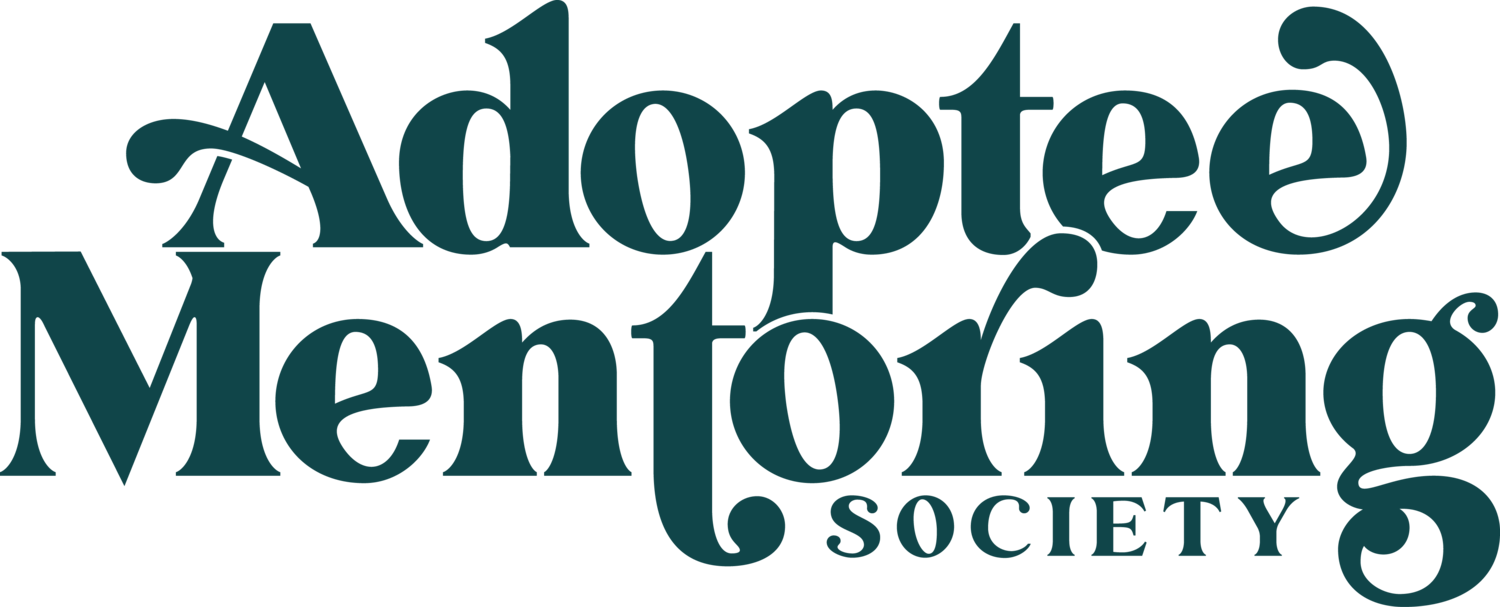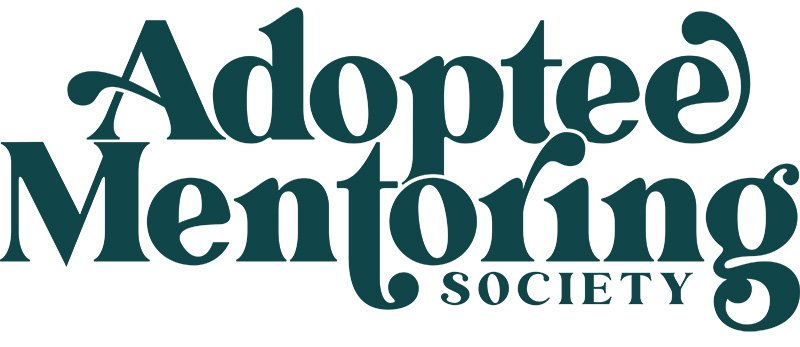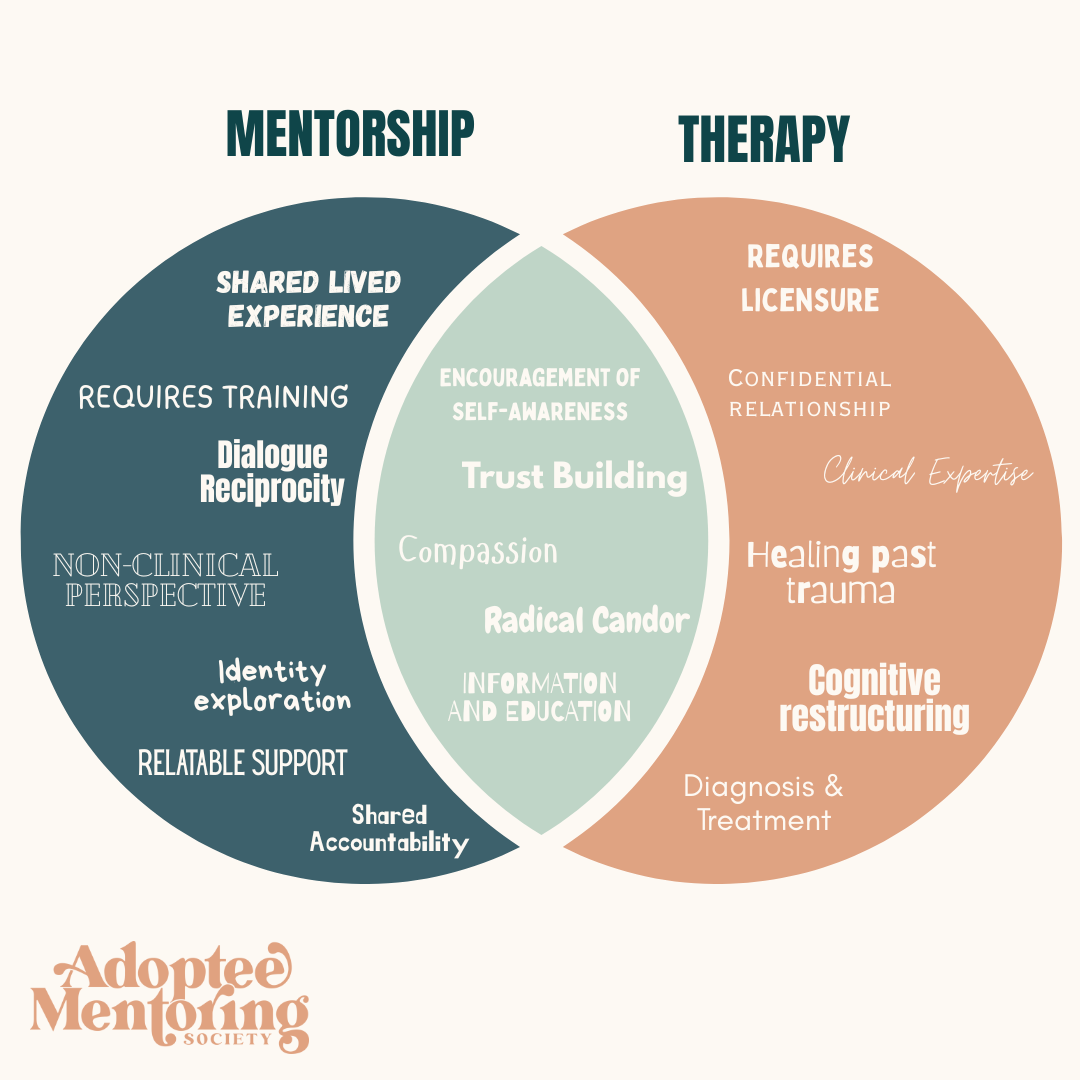How Mentorship Differs From Therapy
By Angela Tucker
Venn Diagram describing the skills of mentorship, therapy and the overlap
When people hear about the Adoptee Mentoring Society, a common question is: "So is this like therapy?"
The answer is no, it’s not therapy. And that distinction is not only intentional, but sacred. It’s why I founded the Adoptee Mentoring Society.
Therapy is an essential and courageous journey and one that many adoptees benefit from. It’s a space for clinical care, guided by licensed professionals who help us heal trauma, navigate anxiety or depression, and build tools for living. Therapy is about identifying wounds, diagnosing pain, and applying evidence-based practices to treat what hurts.
Mentorship, by contrast, is a two-way street. It is built on mutual sharing, trust, and personal connection. Therapists remain purposefully less known to maintain healthy boundaries with their clients. They uphold therapeutic neutrality, where they maintain an objective stance, limiting what they share about their personal lives. This is effective to allow the client’s emotions to take center stage, free from the therapist’s influence. Mentors, on the other hand, show up with their full selves, knowing that the adoptee-to-adoptee relationship itself is key to healing. Our sessions are mentee-led, based on what the mentee or the group brings to the discussion that day. In the Mentor training program, we encourage self-disclosure because that mutual exchange - walking alongside someone who has lived it, too, is a balm. Mentorship is a soft landing place. It’s a lantern-lit room (virtually) where adoptees gather, not to be analyzed, but to be. We don’t seek to erase the ache. We honor it. And ironically, that’s where deep clarity often emerges.
The gentle companionship of someone who has walked a similar road can help adoptees articulate their truths with new precision. Many mentees leave these spaces more equipped to enter therapy—not because mentorship failed them, but because it helped them name what they’d previously been unable to speak. In this way, great mentorship can be a powerful threshold into even deeper work with an adoption-competent therapist.
But mentorship isn’t just a stepping stone. It is a destination in its own right.
There’s a particular alchemy that happens when you’re in a virtual room surrounded by other adopted people. No one needs to explain why silence lingers when someone mentions their birth family. No one needs to justify why joy and sorrow often show up holding hands. In these spaces, the unspoken is understood. And that understanding is healing.
Adoptee mentorship is an act of radical presence. One of our core values for the mentors is to trust that the right people, timing, and outcomes will naturally emerge, staying present and open to the conversations and opportunities that unfold. It’s not about performance, productivity, or perfection. It’s about being known.
If you’re an adoptee longing for a space where your questions are honored, your contradictions welcomed, and your truths held gently— You don’t have to go it alone.
You belong here.
If you are looking for an adoption-competent therapist, check out this directory.


